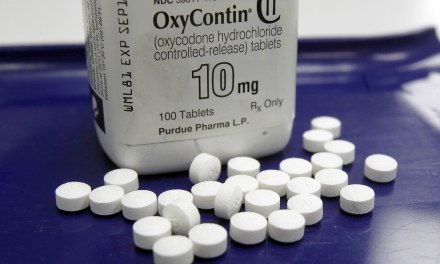Just the other morning someone in a discussion group airily informed me that knowledge of addictive disease was irrelevant to working with addicts. To them, treatment is about client-directed change, and remains constant regardless of the disorder being treated.
Which makes no sense to me. That’s like focusing diabetes care on self-esteem or job satisfaction, just because the patient has problems in those areas. There may be a connection somewhere, but it’s fairly tenuous.
Of course, there remain clinicians who do not see addiction as a disease, and believe this relieves them of the responsibility for learning much about the physiology associated with it. They treat the addict much as they’d treat anyone with life problems such as stress, or grief, or marital difficulties, or anger issues, or family dysfunction. That’s in spite of the existence of a body of research that suggests addiction is actually quite different and involves some very complex processes in the brain itself.
I should point out that the major breakthrough in the treatment of co-occurring mental health and substance disorders was the realization that they should be treated as independent, coequal factors in a case. That the two disorders influenced one another and impacted behavior in a variety of ways. Logically, a patient who suffered from bipolar disorder and severe alcohol dependence required different interventions than one with for instance, PTSD and chronic methamphetamine addiction. The treatment had to reflect the nature of the illnesses being treated.
So why the traditional reluctance within the counseling professions to acknowledge the need to understand the pathophysiology of addiction? I’m guessing two reasons. First, a background in social work or counseling doesn’t include a lot of time spent on neurobiology. Even the instructors may not know much about it. Second, many in the helping professions remain suspicious of what they see as encroaching biological determinism. You’ll hear arguments that the disease model robs the addict of responsibility for his actions and also of control over his recovery.
It’s not true, of course, but many believe it anyway.
As a result, some clinicians wind up doing a sort of generic client-directed counseling with alcoholics and addicts. Is it effective? Maybe in some respects, but likely not many.
Still, if the outcomes aren’t good enough, we can always redefine success. We’ve done that before.














41 years experiences have all the bells and whistles and yes it is a disease national institute of alcoholism and drug addiction in U.S.
The fact that many/most counselors are themselves in recovery, might explain the reluctance to integrate evidence based or neurobiology in dealing with patients. The counselors
have no frame of reference for where or how medicine played a role in their recovery and are comfortable dealing with the behavior and consequences that they relate to. The too common practice of counselors projecting their recovery on patients is an element in itself. The absence of neurobiology in treatment is to deny what is a very real ingredient in dealing thoroughly with the illness, treatment and recovery. This is purely speculative, but I’m wondering if the questioning of non evidence based treatments does not provoke a discomfort in the counselor, who as a result may be moved to question the validity of their own process of a non-medical recovery.
It’s a great disservice not presenting a patient the elements of their particular neurobiology in favor of a generalized psychosocial approach. It’s vital that people be aware that there is a very real physiological aspect at play. I think one reason the non-medical model is preferred by most counselor a is that, as most are in recovery themselves, they relate to the behaviors and consequences of addiction as part of their own story, and are less c
The neurobiology of addiction is important to understand because it shows the physical actions that occur when a substance is ingested. Clients often soak up this information. Neurobiology has also highlighted how our brains change when we change our behavior. The medicalization of addiction is giving us pharmacological management tools, which combined with counseling and other supports, are changing lives. In the end, visualizing neurotransmitter behaviors does not keep most people sober. Finding alternative ways to care for ourselves keeps people sober.
It is true that we social workers didn’t get ANY education/training in the neurobiological/neurobiochemical process of the disease model of addictions. IMHO, It is incumbent upon our educators to provide it because it is fact…often overlooked. But, having experienced the process first-hand, I’m here to spread the word that we in the helping professions MUST get that this is fact….AND that there are other more successful methods of treatment than the traditional 12-step programs…..at least for us women. I am sober because of Women For Sobriety.